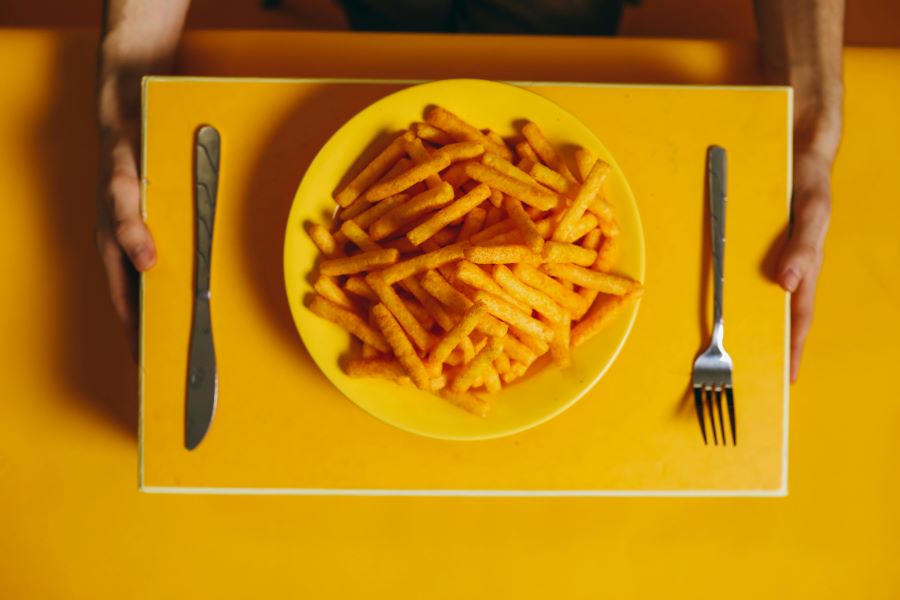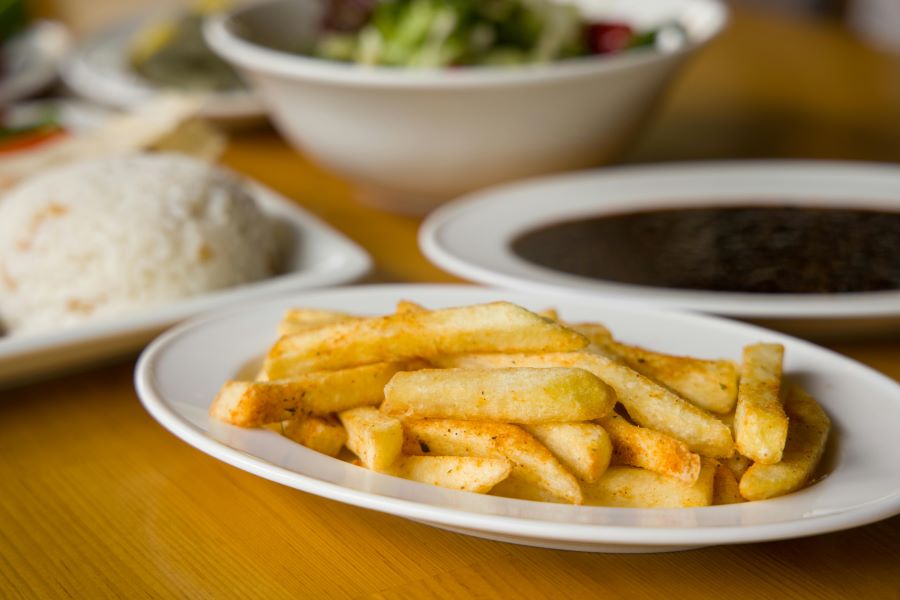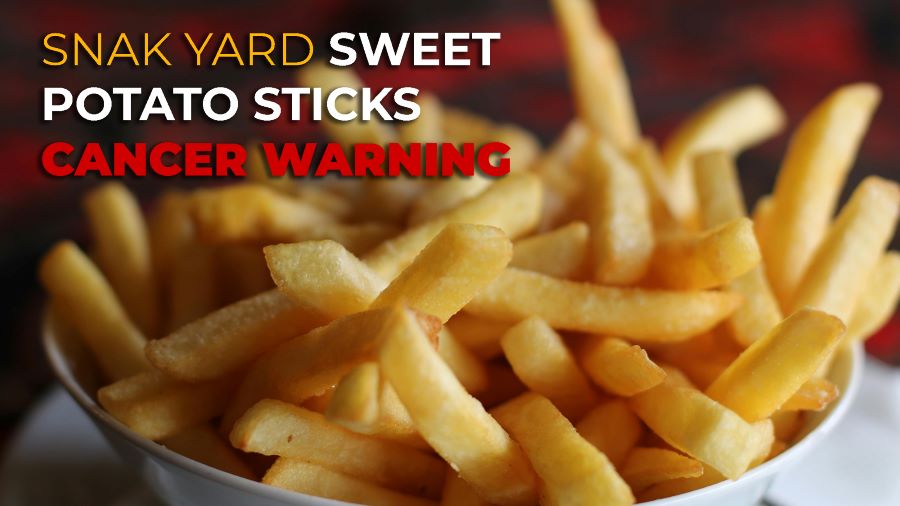Sweet potatoes often evoke cozy, homey feelings—warm casseroles at holiday dinners, comforting meals on rainy afternoons, or the simple joy of a homemade side dish. So when something as familiar and beloved as Snak Yard Sweet Potato Sticks cancer warning pops up, it’s a bit like someone yanked the rug out from under you. Suddenly, you’re wondering:
-
Are sweet potatoes actually bad for you?
-
Is the issue just with this snack, or sweet potatoes in general?
-
Should we all toss these fries and forget about sweet potatoes entirely?
You’re not alone if these questions start buzzing in your head. Let’s walk through the topic in plain, easy-to-understand language—mixing both science and real-life experience to guide you toward smart, informed choices.
Understanding the Snak Yard Sweet Potato Sticks Cancer Warning
That cancer warning label you see isn’t meant to scare you. It’s there because of California’s Proposition 65. This law says that if a product has certain chemicals that may cause cancer or birth defects, it needs a clear warning.

So, what’s behind the snak yard sweet potato sticks cancer warning? One word: acrylamide.
Acrylamide is a chemical that forms when starchy foods—like potatoes or sweet potatoes—are cooked at high heat. Think of when food turns golden brown and crispy. That’s usually a sign acrylamide has formed.
In snacks like Snak Yard Sweet Potato Sticks, the pieces are baked or fried until they’re crisp. That makes acrylamide more likely. The company isn’t doing anything wrong—it’s just following the law. Other snack brands, like Utz, also have similar labels.
Still, seeing that warning can feel scary. You might think, “Should I be worried?” That’s a normal question—and you’re not alone in asking it.
Sweet Potatoes: Nutritional Stars
Let’s focus on the good news first. Whole sweet potatoes—whether boiled, baked, steamed, or roasted—are genuinely nutritious:
-
Rich in fiber, helping digestion.
-
Loaded with vitamins such as A and C.
-
Brimming with antioxidants, which help fight inflammation.
There’s even research hinting that sweet potatoes may offer protective effects against certain types of cancer. The orange variety is high in beta-carotene, converting to vitamin A in the body and acting as a powerful antioxidant. Plus, the greens of sweet potatoes are full of polyphenols—plant compounds that researchers are studying for anti-cancer properties.
So, when someone wonders, “Is this just about the snack or sweet potatoes in general?”, the answer is clear: sweet potatoes themselves are not the villain. Their reputation as a comfort food is well-earned.
Acrylamide: The Culprit in the Warning
Here’s the truth: it’s not sweet potatoes themselves that are causing concern—it’s what happens when starchy foods are cooked too long and too hot. That’s when acrylamide forms. Laboratory studies have shown that acrylamide can damage cells and possibly increase cancer risk—but these studies typically involve large doses far beyond what people would normally eat.
Still, Proposition 65 requires caution when it comes to processed snacks like snak yard sweet potato sticks cancer warning snacks. The law errs on the side of transparency, even if the actual risk is small.
What Experts Say About the Snak Yard Sweet Potato Sticks Cancer Warning
Many people worry after seeing the snak yard sweet potato sticks cancer warning, but experts say there’s no need to panic. The warning is about acrylamide, a chemical that forms when starchy foods are cooked at high heat. Health groups like the FDA and WHO say the risk is low if you eat these snacks once in a while. In animal studies, large amounts of acrylamide caused harm—but people don’t eat nearly that much. The real concern is eating lots of fried and packaged foods every day. That’s where problems can build up. So, the snak yard sweet potato sticks cancer warning is not a reason to fear sweet potatoes. It’s just a sign to enjoy these treats in moderation and cook foods the healthy way when you can.

How to Tell If a Sweet Potato Has Gone Bad
People sometimes ask, “How to know if a sweet potato is bad?” Here are simple signs:
-
Smell: If it smells sour or fermented.
-
Texture: Feel mushy or slimy areas.
-
Appearance: Black spots or mold inside.
A fresh sweet potato should be firm, maybe with rough spots or “eyes,” but nothing leaking or slimy. As for the skin—usually safe and beneficial, but toss it if it’s turning green or sprouting. That green indicates solanine, a natural defense chemical (more common in nightshades but a good rule of thumb to discard).
Side Effects of Eating Raw Sweet Potatoes
Some people try munching on raw sweet potatoes—maybe for smoothies, salads, or raw-food diets. Here’s what to expect:
-
Gas and bloating
-
Possible cramps or discomfort
-
Walk some might experience diarrhea
That’s because raw sweet potatoes contain resistant starches and enzymes that are harder to digest. Cooking breaks those down, making them not only easier on your gut but more nutritionally available.
Upgrading Canned Sweet Potatoes Without Losing Nutrition
Canned sweet potatoes are shelf-stable and convenient, but they can be bland. That’s why folks search for ways to “doctor them up.” Try these ideas:
-
Sprinkle with cinnamon, nutmeg, or ginger.
-
Add a touch of citrus zest for brightness.
-
Drizzle a bit of maple syrup or honey (go easy on sweeteners).
-
Fold in lavender, chopped nuts, or fresh mint.
-
Stir in coconut milk or Greek yogurt for creaminess.
Even though canning slightly reduces certain vitamins, canned sweet potatoes still provide fiber and minerals. Just watch labels for added sugar or syrups.
Balancing Culture, Comfort, and Cancer Concerns
In many cultures—like the American South or parts of Asia—sweet potatoes aren’t just food. They’re tradition:
-
Candied yams on Thanksgiving.
-
Sweet potato fries at weekend dinners.
-
Sweet potato greens simmered in pots.
On Reddit and other forums, this snak yard sweet potato sticks cancer warning has sparked lively discussions. People share research links, swap homemade chip recipes, and weigh convenience vs. health. One Redditor said:
“I love sweet potato fries, but after learning about acrylamide, I started oven-roasting mine instead.”
That real-life shift reflects a healthy balance: enjoy sweet potatoes, but not if they’re deep-fried and laden with pretentious-count chemicals.

Smart Ways to Enjoy Sweet Potatoes—Snack Time?
If you’re still craving that satisfying crunch, here’s a homemade alternative:
-
Slice fresh sweet potatoes thinly.
-
Toss them lightly with olive oil, sea salt, and fresh herbs (like rosemary, thyme, or smoked paprika).
-
Bake in a single layer at 180°C (350°F) for 15–20 minutes, flipping once.
-
Pull out when golden and crisp, not burned.
This cuts down acrylamide compared to industrial fry-cooking and adds flavor without compromising health.
FAQs — Quick Answers
Q: Why do Snak Yard Sweet Potato Sticks have a cancer warning?
A: It’s due to acrylamide, a byproduct of high-heat cooking of starchy veggies—required by California’s Prop 65.
Q: Are sweet potatoes bad for you?
A: No—they’re full of fiber, vitamins, and antioxidants when cooked healthily. The problem lies with cooking methods that produce acrylamide.
Q: Should I be worried about eating sweet potato skin?
A: The skin of a sweet potato is generally safe and full of nutrients. However, if you’re concerned after seeing the snak yard sweet potato sticks cancer warning, just remember to avoid skins that are green, sprouting, or overly soft.
Q: Can sweet potatoes help prevent cancer?
A: Possibly. Their antioxidants—especially beta‑carotene and polyphenols—are under study for anti-cancer effects.
Q: Are there risks to eating raw sweet potatoes?
A: Yes. While the snak yard sweet potato sticks cancer warning relates to cooked snacks, eating raw sweet potatoes can also cause digestive issues like gas or bloating. Cooking helps make them safer and easier to digest.
Final Thoughts: Knowledge Over Fear
The whole snak yard sweet potato sticks cancer warning thing isn’t a scare tactic—it’s transparency. It gives you the chance to learn what acrylamide is and adjust consumption wisely.
Guiding principles:
-
Most processed snacks (not just sweet potatoes) can form acrylamide when baked or fried at high temperatures.
-
One snack won’t ruin your health—but eating croissants and chips daily surely adds up.
-
Focus on whole, nutritious versions: baked, boiled, steamed.
-
Try homemade baked sweet potato chips. Flavorful, crunchy, and healthier.
So enjoy your sweet potatoes—just maybe skip the deep fryer and maintain a balanced approach. After all, the real villain isn’t the veggie—it’s excessive processing and lack of variety.
Here’s to smart snacking and hearty, nourishing meals—where sweet potatoes remain the friendly staple they’ve always been.

